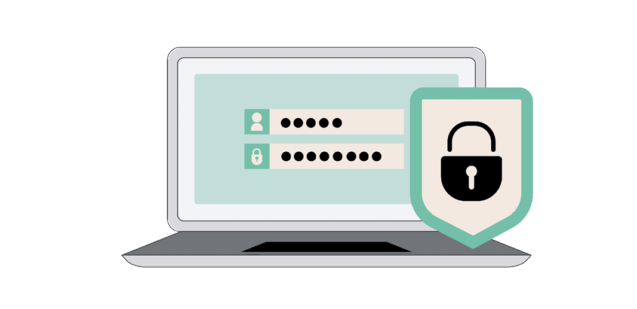Categories

Are you oblivious to your credit score? Too scared to even look? Or do you hover over it like the stock market ticker tape? Neither of these extremes is helpful, but striking a balance and remaining aware of your score and how it is strengthening or weakening are critical to maintaining a healthy credit profile.
Lenders use your score along with other factors to determine your eligibility for car loans, credit cards, personal loans, and other types of credit. The better your score, the more likely you are to qualify for credit or loans, and the better terms you will be offered. A good credit score means lower interest rates, which can amount to hundreds of thousands of dollars over the course of your lifetime. And that’s worth working for!
Understanding and Improving Your Credit Score
Whether we want to or not, we need to keep our eyes open when it comes to monitoring our credit. The responsibility for improving our score and keeping it strong falls solely to us. It’s important to have a working knowledge of the factors that help and harm your credit.
Here are some critical facts to help you better understand your credit score and how to manage it:
Know how your credit score is calculated
Your credit score is a three-digit number, ranging from 300-850, formulated by information in your credit report and based on the standard FICO score. Your actual score is determined by a breakdown of five specific components:
- 35% is your payment history
- 30% is current debts and credit utilization
- 15% is your credit history
- 10% is determined by new credit applications
- 10% is credit mix or types of current credit you carry
If you’re not sure how to manage these components — no worries. We’ll walk you through each of them and make sure you know the do’s and don’ts for keeping a healthy credit profile.
Establish a healthy payment history
If you’re trying to rehabilitate your credit, make sure you begin making regular payments immediately. Your payment history is exactly what it sounds like — the record of your credit payments. It establishes trust between you and your creditors. That trust is compromised when payments are late. Payment history constitutes the single biggest factor in your credit score, so it is critical to make your payments regularly and on time.
Late payments can remain on your record for years. The more recent the infraction, the more heavily it is weighed. If you have late payments getting you down, don’t be shy about asking your creditors to work with you. Call them and let them know you are working to improve your payment history. Sometimes a creditor is willing to wipe your record clean after you demonstrate consistent improvement in your payments. It can’t hurt to ask.
Practice the same discipline with utility and medical bills. Utility companies and health care providers are not going to report a missed payment or two, but you can be sure that if you slip into gross delinquency, it will lower your credit score.
If you struggle with organization and keeping payments straight, Spero can work with you to set up automatic payments so you need not fret about missing deadlines.
Monitor your credit utilization (or debt-to-credit ratio)
Your credit utilization is the ratio of your balances owed as compared to how much credit you actually carry, and it accounts for only slightly less than a third of your credit score — so pay attention to it. If your credit cards are close to being maxed out, you are using most of the credit that has been extended to you, and that results in a lower credit score. Maxed-out credit cards can be an indicator that you are an overspender, and much of your monthly income must go to paying creditors, making you a higher risk for defaulting on loans. When this is the case, you may be denied for loans or be charged high interest rates on the loans you do qualify for.
To avoid high credit utilization, don’t use more than 30% of any credit card’s limit. For example, if you have a card with a $5,000.00 limit, keep that balance under $1,500.00. The lower your credit utilization, the better. Keep credit balances low, and pay off (or at least pay down) balances as quickly as possible. If paying them down is hard at the moment, you might consider asking for an increase in your credit. This is not so you can go on a mad shopping spree, but so that your debt-to-credit ratio is lowered, even though your actual debt amount remains the same.
The main takeaway here is to use credit cards sparingly, and pay them off as quickly as possible.
Don’t be so quick to close out accounts with balances or older accounts
While it may sound counter-intuitive, it is often best to keep credit card accounts open, even while you are trying to curtail credit spending and pay down balances. You might be inclined to close accounts as a means of imposing limits on your own spending as well as demonstrating that you are taking strong measures to lessen your debts. However, closing an account decreases your amount of available credit which, remember, is half the equation of your debt-to-credit ratio. Your ratio — or your credit utilization score — goes up, which then lowers your overall credit score.
In addition, if you close out older accounts, your credit history looks younger, which can further decrease your score. So, keep those accounts open. Pay those balances down. And be disciplined — hide those credit cards or put them on ice!
Slow and steady wins the race
Fifteen percent of your credit score is determined by your credit history, or the length of your track record. Younger people tend to have a bit lower score for this reason, even if they are responsible with their finances and their debts. They simply haven’t had enough time to establish themselves yet. A long-standing record of healthy payments and responsible use of credit cards will add to your score over time.
Keep in mind, however, that even if you are older and have a long history of healthy credit, opening too many new accounts over a short period can set you back a few steps. Those appear as new, or young history. So watch those new accounts.
Understand the difference between hard and soft credit inquiries
FICO doesn’t worry with consumer-initiated inquiries, which means it’s fine to check your own credit for the purpose of monitoring it. You also need not worry about those pre-approved credit card offers flooding your mailbox. Both of these types of inquiries are referred to as soft inquiries, and they pose no risk to your credit score.
It’s the hard inquiries you must watch for. Those are credit checks that precede an actual application for credit — a mortgage, a new car loan, a credit card, etc. Those are the checks lenders perform to determine the amount and terms of credit they may extend to you. While this accounts for only 10% of your overall score, it is worth watching.
A helpful note to remember is that in some situations, multiple credit checks of one type will only register as one inquiry. So, for example, when you are car shopping for the best deal or financing, and you get multiple offers that involve pulling your credit, you will only have one inquiry on your record for all those offers.
Avoid defaulting on loans, if possible
Of course there can be extenuating circumstances, like a family emergency or unexpected unemployment, that lead to missed payments and, even worse, a complete inability to pay back a creditor. In those cases, you cut your losses, get some good financial counseling, and slowly rebuild your credit and finances.
However, defaulting on loans and other credits hurts your credit score, and can stay on your record for seven or more years. It is far better to work with a creditor and negotiate small payments over a longer time, or to even ask for a temporary reprieve, rather than completely walking away. Both will hurt your credit score, but defaulting is a far worse option.
Diversify. Diversify. Diversify.
FICO wants to see a seasoned, experienced borrower, and they factor this part of your history into 10% of your credit score. What this means is that you want to have a good credit mix with a variety of loans or types of credit. If you put everything from toothpaste to a new Mercedes on credit cards, you will have a lower credit score. Over the course of your financial life, utilize a variety of credit — mortgages, car loans, personal loans, credit cards — and then manage them responsibly by paying on time and paying debt off on the agreed to terms.
Bottom line? You owe it to yourself and your credit score to keep a good eye on your credit report. It’s important to check it regularly — it’s simple and free, and Spero can help you. There are also great online credit monitoring sites that analyze your credit profile and walk you through specific steps to take that increase your credit score. They also offer ways to keep up with your current score.
You want to know if your score is improving or dropping unexpectedly. And it is important to watch for inaccuracies in the reporting that can hurt your score. The major Credit Reporting Agencies are not without mistake, and even they can overlook something faulty on your report.
If your current credit score is not as strong as it needs to be, you can make an appointment with one of our member service specialists to help you design a plan and a strategy to gradually strengthen and improve your credit.



